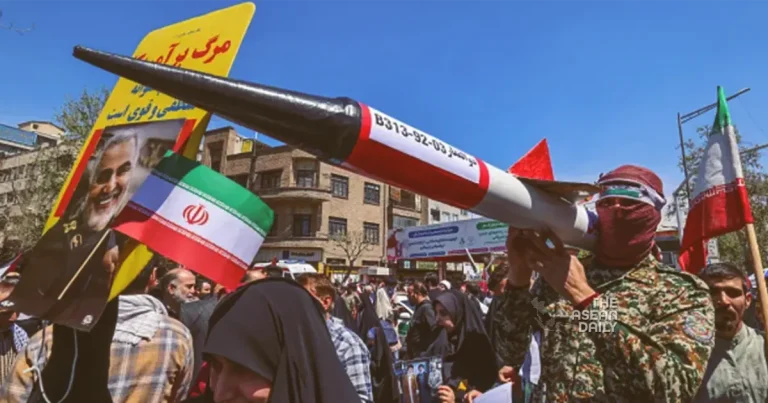11-4-2024 (WASHINGTON) Alarms are sounding within the United States intelligence community over the alarming prospect of an imminent attack on Israeli assets by Iran or its proxies. This chilling revelation has prompted the top American military commander for the Middle East to urgently travel to Israel to coordinate a response strategy.
The catalyst for this heightened state of alert stems from Iran’s public threats of retaliation following a strike in Damascus, Syria, last week. The attack, widely presumed to be the work of Israel, targeted an Iranian diplomatic building, resulting in the deaths of several high-ranking Iranian military officials, including a senior member of the Islamic Revolutionary Guard Corps’ elite Quds Force.
Both Syria and Iran have directly accused Israel of carrying out the strike, which claimed the life of Gen. Mohammad Reza Zahedi, a key figure overseeing Iranian paramilitary operations in Syria and Lebanon, according to Iranian state media and U.S. officials. Zahedi’s death marks the highest-ranking Iranian military casualty since the 2020 U.S. assassination of Gen. Qassem Soleimani in Baghdad.
While the U.S. has categorically denied any involvement in the Damascus strike and claims to have received no prior warning from Israel, the looming question remains: Will Iran opt for a direct strike on Israeli targets, or will it leverage its network of proxies scattered across the Middle East? Historically, Tehran has appeared reluctant to engage in direct confrontation with Israel or the U.S., preferring instead to operate through proxies such as Hezbollah in Lebanon, the Houthis in Yemen, and Iran-backed groups in Iraq.
However, U.S. defense officials have warned that Iran could deploy its own military forces this time, aiming to demonstrate a forceful response to Zahedi’s death. President Biden echoed these concerns, stating, “Iran is threatening to launch a significant attack on Israel.”
Reaffirming the U.S. commitment to Israel’s security, Biden addressed reporters, “As I told Prime Minister Netanyahu, our commitment to Israel’s security against these threats from Iran and its proxies is ironclad. Let me say it again: ironclad. We’re going to do all we can to protect Israel’s security.”
The Biden administration has reportedly conveyed messages to Iran, disavowing any involvement in the Israeli strike in Damascus and warning of consequences should Iran attack U.S. forces or assets. Iran, too, has purportedly sent its own messages to the U.S., with Mohammad Jamshidi, the deputy chief of staff to Iran’s president, tweeting on April 5 that Tehran had warned the U.S. “not to get dragged in Netanyahu’s trap.”
In an effort to defuse tensions, the U.S. has reached out to countries in the region, urging them to encourage Iran to avoid escalation. Israeli officials, meanwhile, have vowed to retaliate if the country is attacked by Iran, further fueling concerns about a wider Middle East conflict.
Gen. Michael Erik Kurilla, the commander of U.S. Central Command, responsible for U.S. military operations in the Middle East, had initially planned to visit Israel to discuss logistics for a temporary U.S. pier in northern Gaza, aimed at expanding humanitarian aid deliveries. However, in light of the evolving situation, Kurilla is now expected to travel to Israel this week to address the potential Iranian attack and coordinate a response strategy with Israeli Defense Minister Yoav Gallant.
While the Pentagon remains tight-lipped about any force adjustments in response to potential threats, U.S. military forces in the region have maintained a heightened state of readiness since the Hamas attacks on Israel on October 7.
Tensions continue to mount as Iran’s Supreme Leader Ayatollah Ali Khamenei declared on social media that the strikes in Syria constituted an attack on Iranian soil, vowing, “Israel should be punished, and it will be punished.” Israeli Foreign Minister Israel Katz responded with a stern warning, stating that if Iran attacks Israel from Iranian soil, Israel would retaliate inside Iran.




